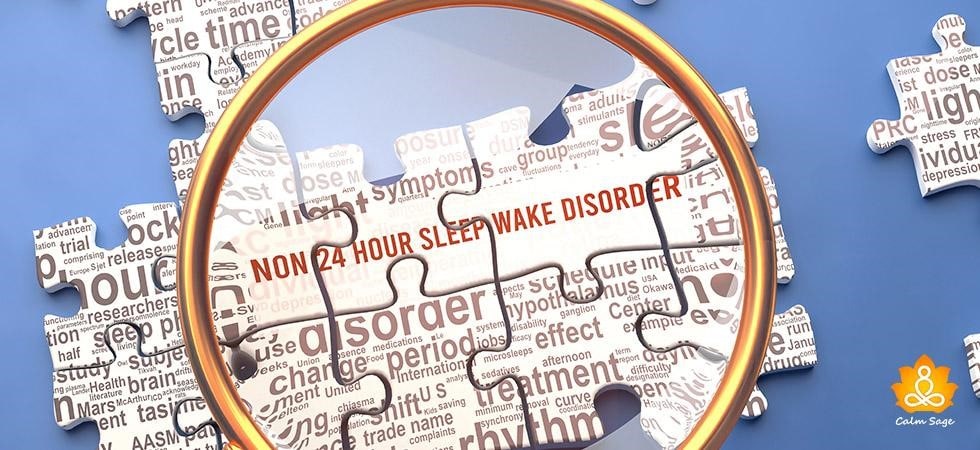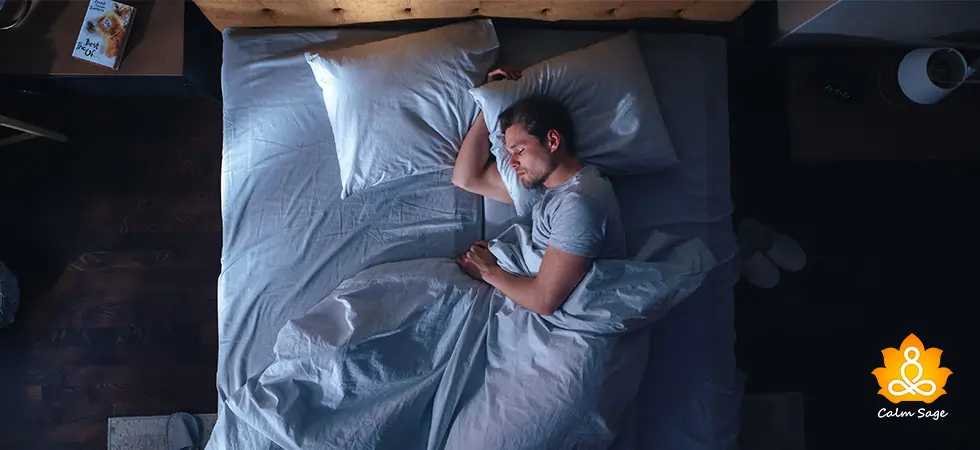Mini-Guide: What is Non-24-Hour Sleep-Wake Disorder?

It is recommended to sleep 7-8 hours per day for adults… well, what happens when someone is not able to get sleep for 24 hours? Not sleeping for 24 hours can be a rare sleep disorder. This rare sleep disorder comes under the type of circadian rhythm sleep disorder.
Non-24-hour sleep-wake disorder is a disorder wherein an individual’s sleep is gradually delayed by 1-2 hours regularly. Scientifically, our body follows a circadian rhythm of a 24-hour sleep cycle…when this cycle keeps on disrupting or getting longer or shorter than 24 hours, it is known to be a non-24-hour sleep-wake disorder.
A complete short cycle of 24 hours is rare. However, the consistency and occurrence can cause the circadian rhythm to be completely unmatched by the standard 24-hour cycle. Over time, this disorder can lead to various mental health issues that can affect professional and personal life. In this blog, we have covered everything you need to know about non-24-hour sleep-wake disorder. So, let’s get started!
This blog covers the following:
- What is Non-24-Hour Sleep-Wake Disorder?
- Symptoms of Non-24-Hour Sleep-Wake Disorder
- Causes of Non-24-Hour Sleep-Wake Disorder
- Diagnosis and Treatment of Non-24-Hour Sleep-Wake Disorder
- Coping Strategies for Non-24-Hour Sleep-Wake Disorder
- Key Takeaway: Maintaining a Social, Personal, and Professional Life
What is Non-24-Hour Sleep-Wake Disorder?
Non-24-hour sleep-wake disorder (N24SQD) is a type of circadian rhythm sleep disorder that does not follow a normal 24-hour sleep cycle; instead, it progresses each day and causes disruption in quality of life and sleep issues. This is a rare type of sleep disorder that needs awareness because people generally do not understand the challenges someone faces when trying harder to get a good sleep.
Sleep deprivation related to the disorder can put someone at risk of developing physical and mental health issues like depression, anxiety, obesity, diabetes, and other chronic issues.
Symptoms of Non-24-Hour Sleep-Wake Disorder

Since the circadian rhythm keeps on progressing every night, the symptoms can also be different. Most importantly, the symptoms of non-24-hour sleep-wake disorder range according to severity and they can be progressing in nature if not diagnosed or managed.
Below listed are some of the common symptoms of on-24-hour sleep-wake disorder:
- Anxiety
- Depression
- Insomnia
- Lack of concentration
- Progressive sleeping and waking up changes every day
- Sleepiness
- Sleep changes and reduced sleep hygiene
- Tiredness or exhaustion
Causes of Non-24-Hour Sleep-Wake Disorder
Research for the exact cause of non-24-hour sleep-wake disorder is still going on; however, some psychologists have come up with some theories that might fit into the disorder. Below are some of the common causes of non-24-hour sleep-wake disorder based on theories:
- Blindness
- Sensitivity to light
Diagnosis and Treatment of Non-24-Hour Sleep-Wake Disorder
Scientifically, this disorder is more likely to be developed in blind people. Since the symptoms of non-24-hour sleep-wake disorder is similar to other types of sleeping disorders, your physician or mental health provider might take a detailed history to make a proper diagnosis. There can be some genetic factors as well therefore, it’s important to disclose medical or family history while getting a diagnosis.
Basically, Actigraphy is done by a physician to measure the sleep-wake cycles, therefore, it is recommended to visit a physician for proper diagnosis. If you or your loved one shows mental health issues after getting a diagnosis of a non-24-hour sleep-wake disorder, you can connect with a mental health professional to work specifically on your mental health issues and learn some healthy techniques to get some good sleep and clear your mind from negative thoughts.
Talking about treatment, your physician might prescribe you some medications approved by the FDA to treat your condition. Along with medication, your physician might prescribe light therapy.
Coping Strategies for Non-24-Hour Sleep-Wake Disorder

Maintaining a regular sleep cycle is important to cope with or manage a non-24-hour sleep-wake disorder. Additionally, it is also important to help your body maintain the circadian cycle (which can be done with light therapy).
Apart from this, here are some, effective coping strategies for managing or living with non-24-hour sleep-wake disorder:
- Maintain a strict sleep routine
- Establish a bedtime routine followed by relaxation techniques
- Consume light meals and add food groups that induce sleep
- Avoid digital devices before bedtime
- Avoid using stimulants before bedtime
- Maintain the temperature of the room
- Stay hydrated during the day
- Keep yourself physically active throughout the day
- Avoid using blue-light blockers
- Maintain sleep hygiene and learn tips to achieve deep sleep
Key Takeaway: Maintaining a Social, Personal, and Professional Life
Maintaining a social, personal, and professional life can be really challenging when diagnosed or living with non-24-hour sleep-wake disorder, however, here are certain things that you can do to make life easier with “not getting sleep for 24 hours” related issues:
- Ask your friends, loved ones, or family members to be flexible with timings
- To avoid late-night stimulation, plan activities during day time.
- To increase productivity at work, consider a flexible job such as freelancing
- If you’re a student, you can opt for online classes as they are more flexible
- Join a support group to share your thoughts and feelings
Brownie Opinion: Keep communicating with your loved ones so that you feel less alone and can build up new ideas that can help you manage non-24-hour sleep-wake disorder
I hope this blog helps you with everything you wanted to know about non-24-hour sleep-wake disorder.
For more such content, connect with us through all social media platforms.
Thanks for reading!




















